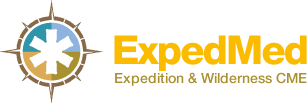In a prior post I mentioned the Health Emergencies in Large Populations (HELP) course for those who are interested in working in disaster areas providing humanitarian assistance.
Reviewing information about the HELP course reminded me of a great manual for those interested in humanitarian assistance.
The book Emergent Field Medicine was published a few years ago to help those who are providing care in under-developed regions and disaster areas. My view of this textbook is biased– mainly because I am friends with a number of the editors and contributors of this text– but I still believe it is a great tool for anyone going to a remote area to provide care.
The text was written by a stellar group of experts and provides an overview of a variety of topics including public health, tropical infectious disease, refugee health, nutrition, and dental emergencies to name a few. The format provides a reader with information that is easily accessible and of appropriate depth for a field manual.
For those who are considering working in a remote area, Emergent Field Medicine is a good way to prepare before you go, and a good resource to use while you’re away.

